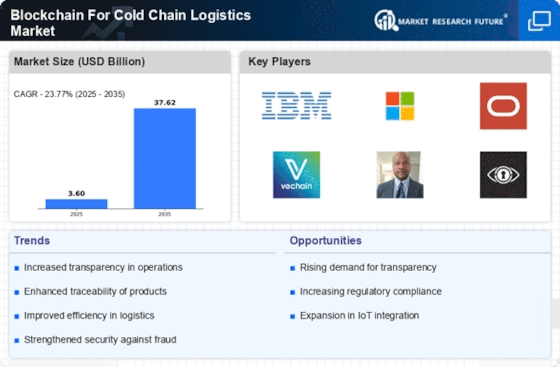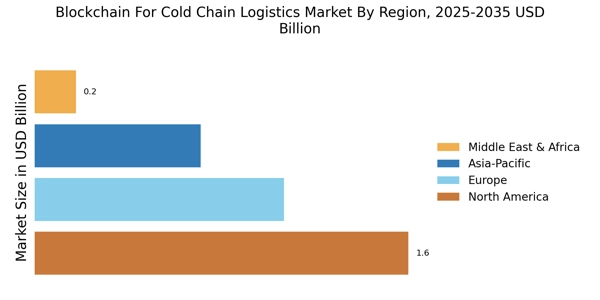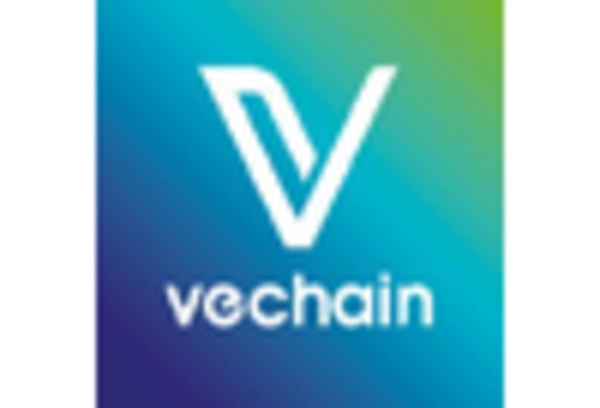North America : Innovation and Leadership Hub
North America is the largest market for blockchain in cold chain logistics, holding approximately 45% of the global market share. The region's growth is driven by increasing demand for transparency and traceability in supply chains, alongside stringent regulatory requirements. The U.S. and Canada are at the forefront, with significant investments in technology and infrastructure supporting blockchain adoption.
The competitive landscape is robust, featuring key players like IBM, Microsoft, and Walmart, who are leveraging blockchain to enhance operational efficiency. The presence of advanced technological ecosystems and a strong focus on research and development further bolster the region's market position. As companies seek to optimize logistics and reduce waste, North America remains a pivotal player in the blockchain for cold chain logistics market.
Europe : Regulatory Framework and Growth
Europe is witnessing significant growth in the blockchain for cold chain logistics market, holding around 30% of the global share. The region's growth is fueled by regulatory frameworks that promote digital transformation and sustainability in supply chains. Countries like Germany and the Netherlands are leading the charge, with initiatives aimed at enhancing food safety and reducing waste through blockchain technology.
The competitive landscape includes notable players such as VeChain and Modum, who are actively collaborating with local governments and businesses to implement blockchain solutions. The European Union's commitment to digital innovation and sustainability is driving investments in this sector, making Europe a key player in the global market for blockchain in cold chain logistics. "The European Commission is committed to fostering innovation in supply chains through digital technologies."
Asia-Pacific : Rapid Growth and Adoption
Asia-Pacific is rapidly emerging as a significant player in the blockchain for cold chain logistics market, accounting for approximately 20% of the global market share. The region's growth is driven by increasing urbanization, rising consumer demand for quality food products, and government initiatives promoting digital transformation. Countries like China and India are at the forefront, investing heavily in blockchain technology to enhance supply chain transparency.
The competitive landscape is characterized by a mix of local and international players, including VeChain and Ambrosus, who are focusing on tailored solutions for regional challenges. The presence of a large population and growing e-commerce sector further accelerates the adoption of blockchain in logistics, positioning Asia-Pacific as a key market for future growth.
Middle East and Africa : Emerging Market Potential
The Middle East and Africa region is gradually emerging in the blockchain for cold chain logistics market, holding about 5% of the global share. The growth is primarily driven by increasing investments in technology and a growing awareness of the benefits of blockchain in enhancing supply chain efficiency. Countries like South Africa and the UAE are leading the way, with initiatives aimed at improving food safety and traceability.
The competitive landscape is still developing, with local startups and international players beginning to explore opportunities in this space. The region's unique challenges, such as climate and infrastructure, present both hurdles and opportunities for blockchain adoption. As governments and businesses recognize the potential of blockchain, the Middle East and Africa are poised for gradual growth in this sector.

















